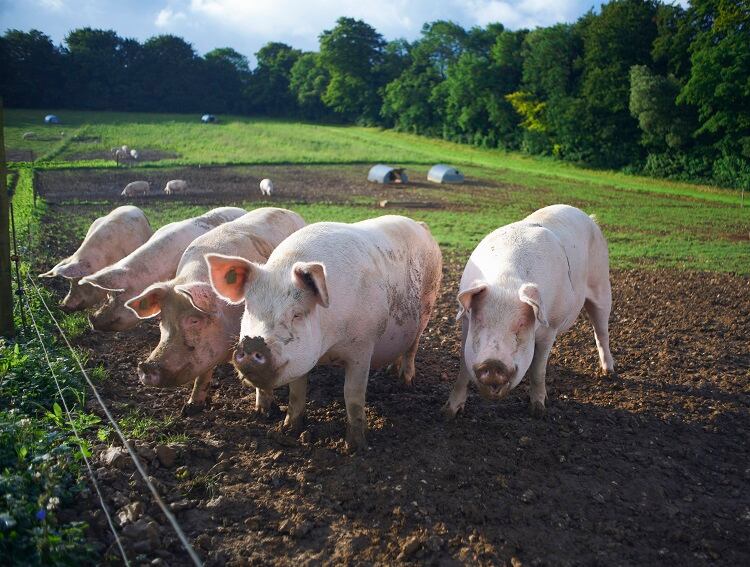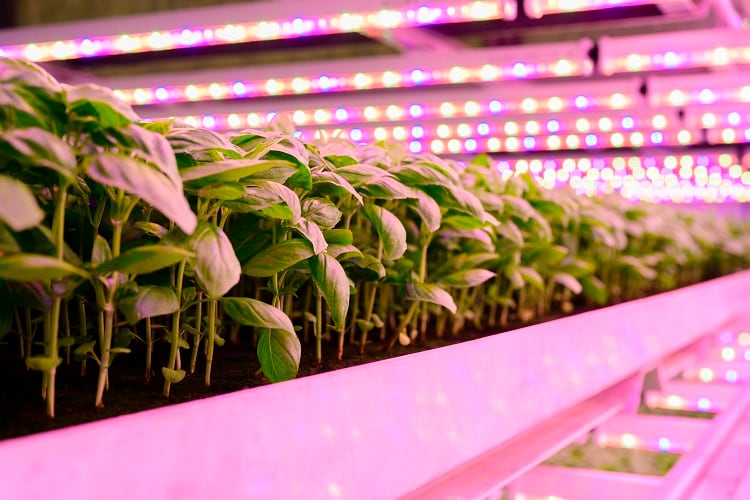A 2021 study in Nature Food entitled ‘Global greenhouse gas emissions from animal-based foods are twice those of plant-based foods,’ found that animal-based foods and livestock feed contribute 57% of the greenhouse gasses (GHG) from food production, compared to 29% contributed by plant-based foods.
The seismic meaning behind such a statistic is not something the food industry has overlooked. Growing concerns about the environmental impact of meat consumption have contributed to the influx of plant-based versions of meat and animal-based products being released over the last decade.
However, meat is still very much a part of people’s lives. “Demand for British meat and dairy is still high, with 98% of people in the UK buying red meat and dairy products as part of a healthy, balance diet,” said Minette Batters, President of the National Farming Union (NFU).
“Red meat is a great source of iron and other nutrients, and a glass of milk contains 74% of our recommended intake of B12, in comparison to many plant-based alternatives which can often be highly processed.”
But what is the future of animal agriculture in the conditions we currently exist in? Can it continue in a world where conventional meat production contributes so much to climate change?
The future of meat: sustainable production
Of course, there are still many benefits to meat consumption. Matt Dight, head of sustainability at high welfare pork provider Pilgrim’s UK, spoke to us about why meat consumption still has consumer support.
“We know that some consumers are trying to eat less meat for a range of reasons, which could be around health, animal welfare and sustainability,” he told FoodNavigator.
However, it is often financial circumstances that get in the way of this trend. “The current cost-of-living crisis is also undoubtedly affecting buying habits, with people looking for cheaper food alternatives. But many of the current plant-based meat alternatives are actually more expensive and offer minimal nutritional benefit compared to meat products, which can be prohibitive for consumers as they may not get the required amount of protein into the diets.
“Plant-based meat alternatives can fall into the ultra-processed category and may not actually offer the same health benefits as their meat-based counterparts.
“And there can be a lot of greenwashing in this area; some plant-based products that appear to be green can be highly processed and are shipped thousands of miles around the world.”
Meat, of course, has many important nutritional qualities. It can, Dight suggests, be produced in a way where these positives are more prominent than its negatives. “When consumers do eat meat, they want to be safe in the knowledge it’s produced in a way that’s not detrimental to the planet or to their health.”
Plant-based meat, as a substitute for animal meat that often does not provide the same environmental harms, is often posited by manufacturers as the future of meat. But the reality, at least for now, is very different, according to Dight.
“We’ve found that 97% of households are still integrating meat into their diets,” he told us, “as actual meat still forms the basis of the overwhelming majority of meals.
“There has also been growth in the value tier as shoppers manage their spending during the cost-of-living crisis.
“So, I don’t think these changes in trends are a threat to the industry.” Meat, he points out, can be sustainable when done right.
Farming and sustainability
There are many reasons why meat production is harmful to the environment. One of them is its contribution to deforestation in biodiverse regions, which is often driven by the need to clear land to grow soy which is used as animal feed by many farmers.
However, Pilgrim’s aims to avoid this problem. “Pig diets are formulated to optimise costs and GHG performance,” Dight told us, “and we’ve spent more than 15 years working on R&D to lower the GHG emissions associated with diet formulations.
“Primarily, this has involved reducing soya usage where possible, and ensuring that the soya that is used is traceable and sourced responsibly – validating that there is no land use change associated with deforestation or conversion within the soy supply.
“We’re working closely with supply chain partners and we’re always working on new trials and innovations.”
Alongside the issue of deforestation, pigs also produce less methane than cows, according to Harvard Health Publishing.
The environmental impact of meat is not a cut and dry connection, but often depends on the type of meat reared, and the supply chain of the feed which is used to rear it.





